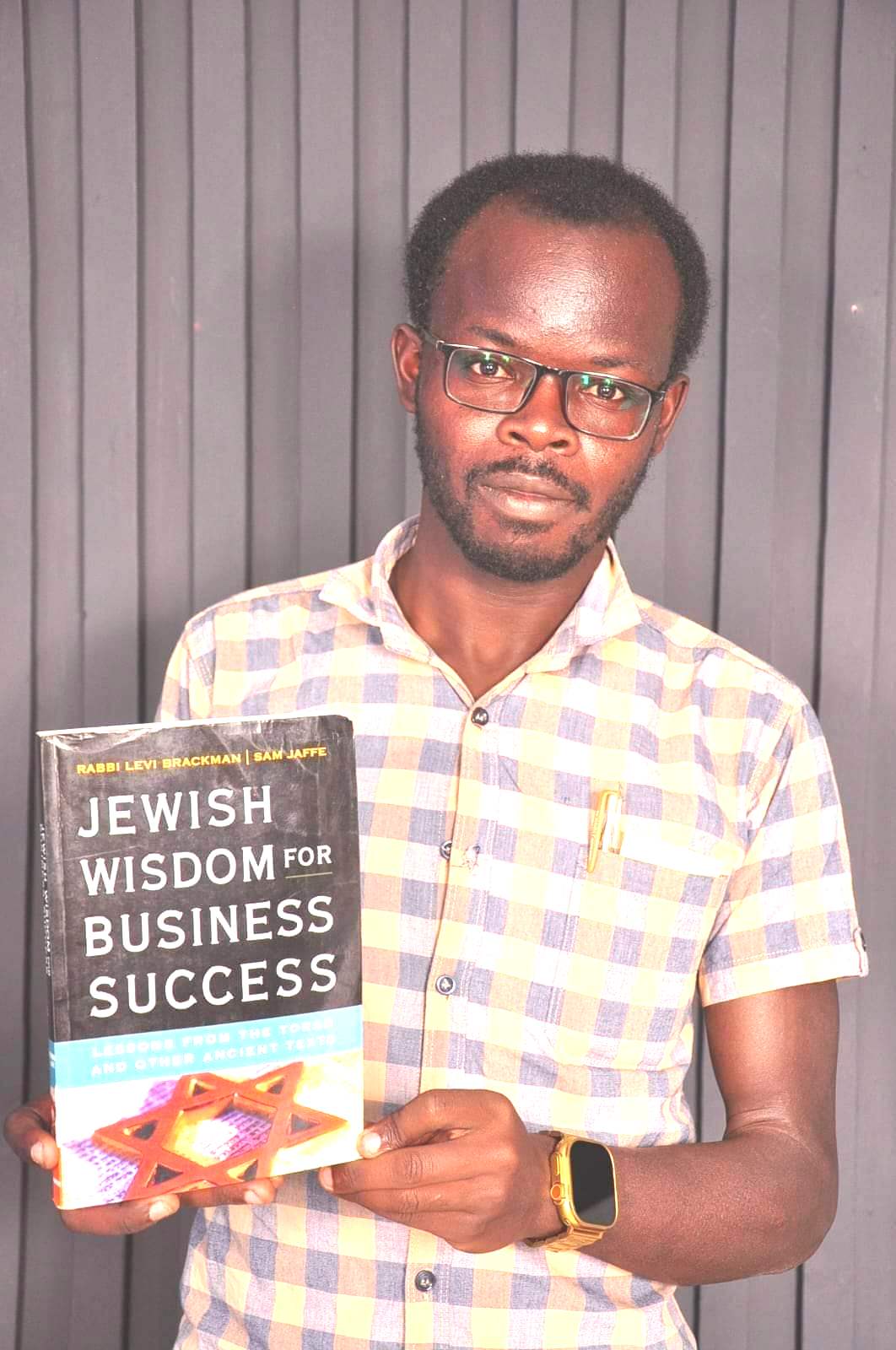In the recent past, I read a heroic book titled The Jewish Phenomenon by Steven Silbiger. It talks about the seven keys to enduring wealth of Jews. It talks about why the few Jews in the United States— about 2 per cent of the total population— are wise and wealthy. After poring over that great text from cover-to-cover, I concluded that there is something in particular which is spectacular and peculiar about Jews in business.
No wonder, I felt elated to set my eyes on the second beautiful book talking about Jews. The heroic book is titled Jewish Wisdom for Business Success by Rabbi Levi Brackman and Sam Jaffe. It talks about business lessons lifted from the Torah – first books of the Holy Bible – and other ancient sacred texts such as Zohar, Midrash, Talmud and Kabbalah.
Straight into it, Jewish Wisdom for Business Success explores three Models of Entrepreneurship, which include: Classic Entrepreneurship, Social Entrepreneurship and Spiritual Entrepreneurship.
Firstly, Classic Entrepreneurship focuses on how people have been doing business in the distant and present past. Since the dawn of capitalism. In this model, entrepreneurs take risks in order to try new good ideas in business. What is the main aim? Making as much as possible.
Classic entrepreneurs take risks with their own capital and financial future because they long to be rich. To them, business is business. It is strictly focus on profitability and wealth creation. Classic entrepreneurs hardly venture into business while thinking about benevolence, altruism and philanthropy.
Secondly, Social Entrepreneurship involves starting a business with the aim of making the world a better place in some way while trying to make money along the way. In this model, people involved attempt to transform business into a vehicle for social change.
Thirdly, Spiritual Entrepreneurship is the concept of synthesising spirituality and making money. This is a form of business where money made is used to effect change. Entrepreneurs use moolah to improve the world in a manner that is in perfect agreement with what they perceive as God’s purpose for the universe.
Therefore, Jews believe with every fibre of their being. Building business is somewhat like creating the universe. It involves both the inner and outer will. You cannot go wrong in case you follow God’s will. For God Almighty is the ultimate entrepreneur. His enterprise is the vast universe. Like God, all people are enterprises. For those who have not started their own companies, restaurants, shops, supermarkets, et cetera, should view their careers as entrepreneurial enterprises. Most of us enter into a particular profession because of its convenience. We take the job because it is available at that particular point in time.
READ ALSO:
UoN Vice Chancellor tells State to increase funding for varsities offering STEM courses
In most cases, we fall in love with the career because of what it offers, not because it is what we yearned to do in life.
Ideally, when you start a new business, you ought to conduct serious market research, write a detailed business plan, raise capital, hire qualified staff, raise ample office space, buy equipment, attract clients and build your business brand with brilliance. Meaning, no business can access success without proper infrastructure. Then, a business must focus on its main mandate – profitability. To succeed in business, never allow the surrounding aspects of your business life to make you veer off the royal road of making money. One of the most important components of success is FOCUS – Follow One Course Until Successful.
Consequently, passion and pleasure drives people who are in business. A comely combination of those two – drives out boredom in business. Those who access success in business put passion in what they do. When this happens, work ceases to be a chore. It becomes pleasure. It is hard to lose motivation or even experience burnout when business is full of fun.
Then, successful business owners always have one thing in common: they find the proper mix of humility and healthy self-esteem. Torah counsels Jews to fight against the wrong urge of placing oneself above others or God. In a broader sense, people who have a highly-inflated sense of their abilities and talents are just delusional for no good reason. They finally fail and fall flat.
The difference between those who fail and those who finally access success in business depend on how they view failure. Meaning, when we fail, we should not wail, but sail. For some businesses finally fold when owners fail to allocate enough resources to customer-service to enhance customer-loyalty.
Then, there comes a time. When the owner of the business must accept. The fact that one person cannot do everything. Therefore, delegation of responsibilities and resources enhances double-digit growth in business.
Moreover, those who access success in business master the soft skill of negotiation. Successful collaborative negotiation lies in finding out what the other side really wants and showing them a way to get it where you get where you want. In the whole scheme of things, the key to winning a negotiation is knowledge – knowledge of yourself, knowledge of your negotiating partner, and knowledge of the fair value of the real deal.
With requisite knowledge, the negotiator can deploy various tactics such as asking questions, showing the other side how their position is out of sync with their own values and policies. Or persuading the other side to come closer to your side through skillful argument of what is in their best interest. Therefore, it is wise do your homework regarding the other party’s situation, policies and aims so that you can augment your argument that a compromise benefit you will benefit them, too.
Finally, positive thinking is the hallmark of a successful business person. By being positive, you entice positive outcomes. Clearly, thoughtful optimism breeds success. Take a room full of CEOs, millionaires and others who have reached the crest of great achievement in business, you will certainly find a room full of people who are, by nature optimistic. Lending credence to the wise words: Perpetual optimism is a force multiplier. Torah teachings focus on optimism and positive thinking as keys to true success and positive outcomes.
Then, Torah stresses that thought itself will not accomplish anything. It is only when thought is combined with action that positive thinking can entice success. In the same token, words have power, and when we say something negative, we attract the same negative thing. Therefore, we should replace negative thoughts with positive ones. Almost always, you will ascertain that successful people do not focus on negativity, while unsuccessful people like negativity. Some are cheerful pessimists.
By Victor Ochieng’
The reviewer is a ravenous reader. He rolls out talks and training services.
vochieng.90@gmail.com. 0704420232
Get more stories from our website: Education News
To write to us or offer feedback, you can reach us at: editor@educationnews.co.ke
You can also follow our social media pages on Twitter: Education News KE and Facebook: Education News Newspaper for timely updates.
>>> Click here to stay up-to-date with trending regional stories






